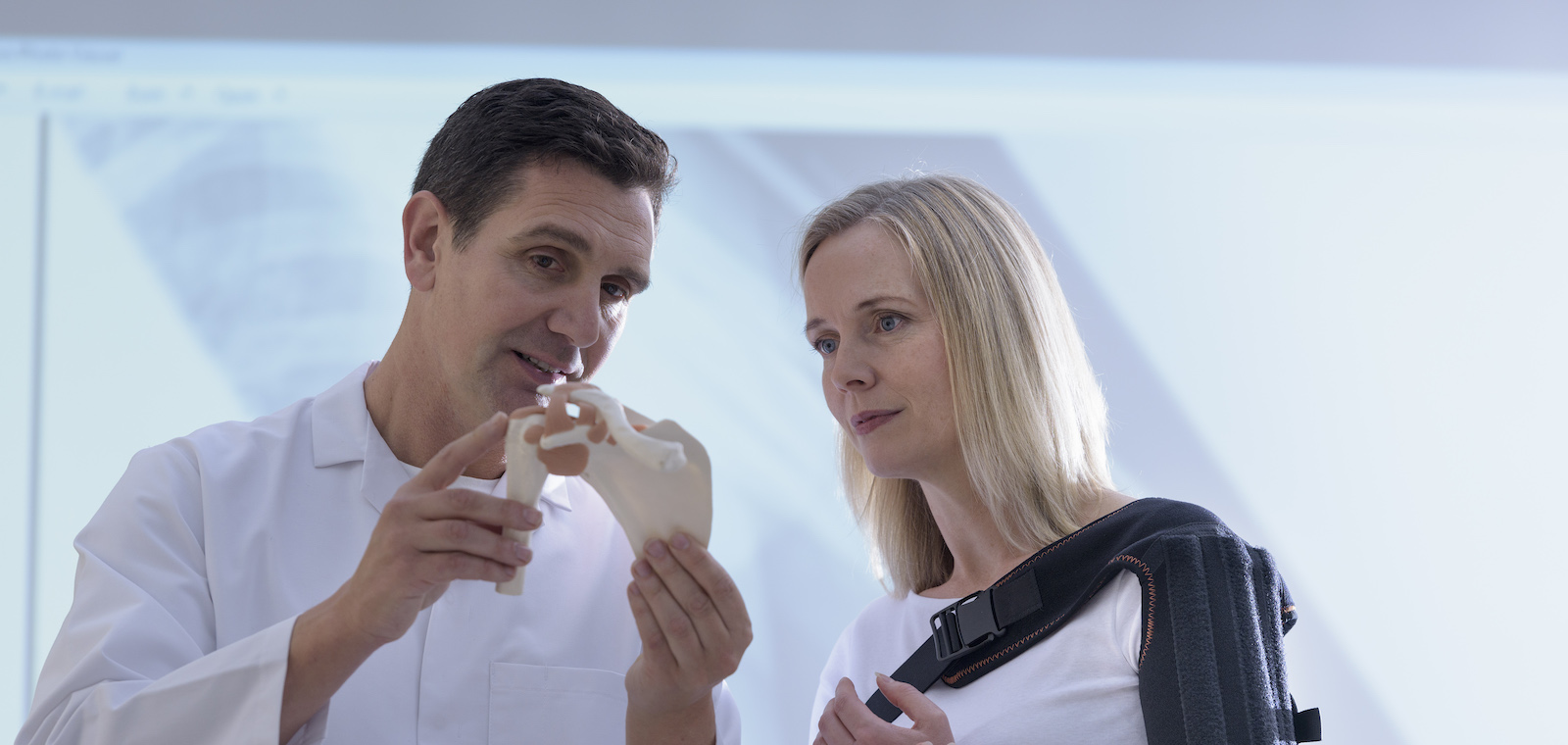Experience and Expertise in Orthopaedic Trauma Care
People of all ages can experience trauma and fractures during auto accidents, falls, and other scenarios. Sometimes these injuries require treatment beyond their initial repair.
Revision trauma surgery can be necessary to treat injuries that are complicated, severe, or resistant to healing.
Revision trauma surgery may be needed when:
- A complex traumatic injury requires multiple surgeries or long-term treatment
- A person who experienced a traumatic injury is not regaining function or quality of life following treatment
- Further damage occurs in bones or soft tissue after a trauma surgery
- The implants or prosthesis used in a trauma surgery are not functioning properly
- The initial trauma surgery does not go as successfully as expected
UT Southwestern has one of the most comprehensive orthopaedic services in North Texas. Our team of surgeons, medical doctors, and rehabilitation specialists offers the newest techniques and procedures available to help relieve pain, restore movement, and improve quality of life for patients.




